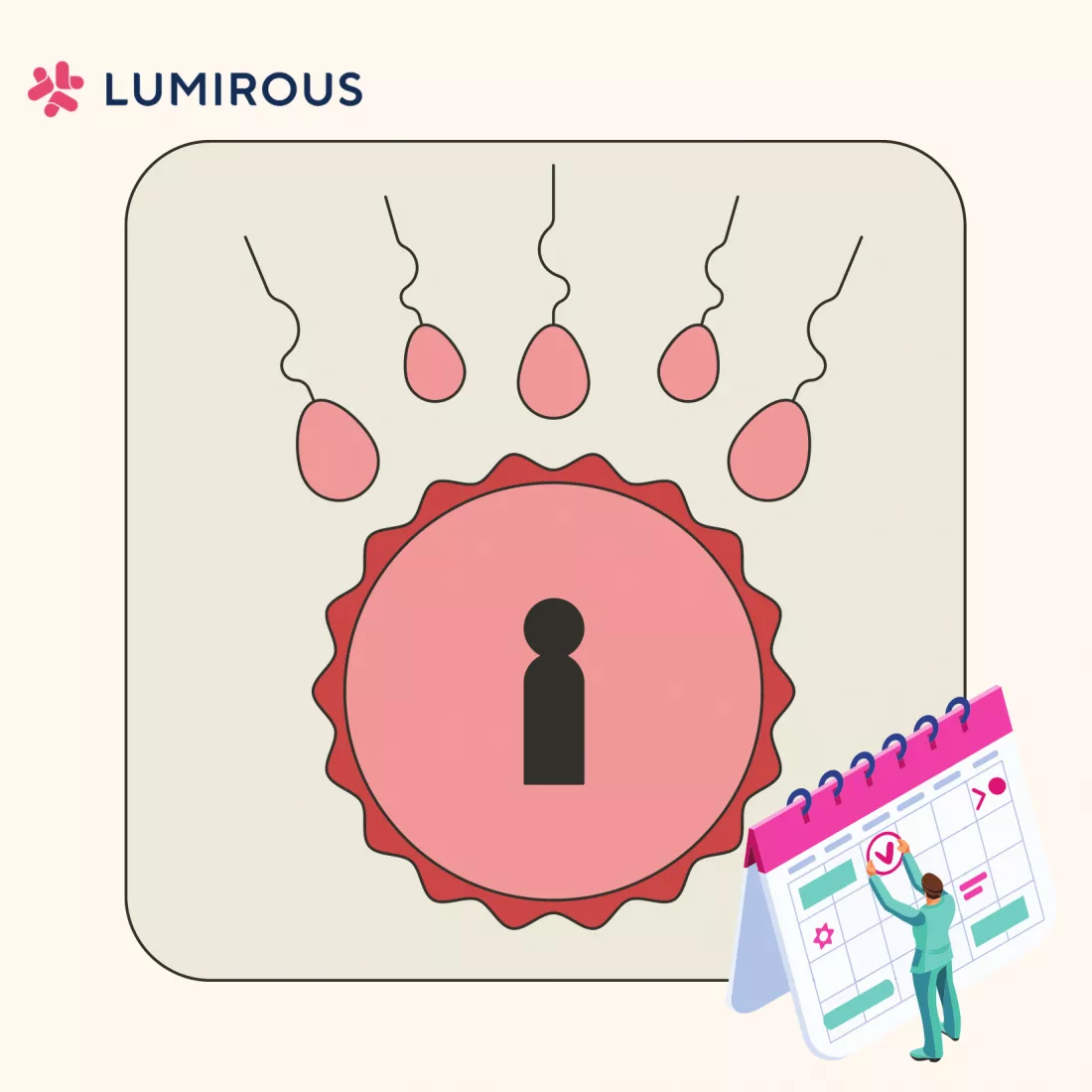Table of Contents
Ovulation is one of the most important processes to happen during a successful pregnancy. In order to understand it better, we at LUMIROUS have come up with a list of all there is to know about the ovulation period.
What is Ovulation?

Ovulation is the process where an egg is released from the ovaries and into the fallopian tube. This usually takes place before the beginning of a period or menstruation cycle, which can be 13 to 15 days prior.
How Do I Know if I Am Ovulating?
It’s important for you to know when you are ovulating, especially when you are trying to get pregnant! The easiest way to know this is by paying attention to your body, as it changes during ovulation.
Keeping a calendar for your menstrual cycle also helps as it gives you a better visual understanding of the days of your cycle. Once you have that down, let’s learn what are the signs and symptoms to look out for during ovulation.
Symptoms of Ovulation
Your body will experience changes as you approach ovulation. Here are some symptoms of ovulation that you may be experiencing:
Discharge or Light Spotting
Don’t freak out if you happen to notice discharge (sometimes brown in color) or spotting appearing on your underwear, as it is a common factor to happen during ovulation. The dark color of the discharge happens when blood gets older, which is also common.
Cervical Mucus Changes
When ovulation happens, your body will be producing more estrogen, which makes cervical mucus change its form. Most people have noticed a clear and stretchy change in their discharge, where it takes the appearance of egg whites. If the discharge is sticky, slippering, stretchy, and overall rather wet; it’s a good sign of fertility. This actually helps sperm to swim toward the eggs formed during ovulation, which improves the chances of a pregnancy occurring.
Breast Soreness
Similar to how some people feel breast soreness during their periods, it also occurs during ovulation. This is caused by the hormones that are rushing through the body, just before the ovulation period occurs and right after it finishes. The feeling has differed across people, where some have reported feeling the soreness before ovulation while others thought it after ovulation.
Lower Abdominal Parts
In some cases, people have reported feeling cramps at the side of the abdomen during ovulation. Similar to period cramps, ovulation pain happens sometimes when the ovary is releasing an egg. It’s important to note that ovulation pain only occurs for a few minutes. Anything longer than that might require medical help, as the pain is usually mild for a brief moment.
Increase in Libido
A good sign that you are ovulating would be an increase in your libido. If you feel yourself experiencing a sudden increase in your sex drive, it could be a good sign that you are beginning to ovulate.
Irregular Periods and Ovulation
According to Todd (2020), irregular periods make up for 30% to 40% of all cases of infertility. It’s best to speak to your doctor if you experience irregular periods as it affects a person’s ovulation, fertility, and chances of pregnancy. Irregular periods could also be a sign of polycystic ovary syndrome (PCOS), which you can read more about here.
Painful Ovulation
Experiencing pain during your ovulation is both common and concerning. Not every person will feel discomfort, but for those who experience debilitating pain— it might be worth checking out.
The source of ovulation pain can be from ovarian cysts that sometimes require surgery to remove or an ectopic pregnancy, where an embryo grows outside of the uterus. Both of these have the potential to be a threat to the person experiencing it, so it is recommended to see a doctor immediately.
There is also the case of endometriosis, which we explained more about here.
With that, we hope that you understand more about ovulation and all the different factors that come to play with it. We at LUMIROUS hope that you pay attention to your body and love it as you embark on a successful pregnancy. For more information, check out our website or contact us below.
References
- Mayo Clinic (December 7, 2022). Getting pregnant. https://www.mayoclinic.org/healthy-lifestyle/getting-pregnant/expert-answers/ovulation-signs/faq-20058000
- Healthline (January 25, 2022). What Is Ovulation? What to Know About Your Menstrual Cycle. https://www.healthline.com/health/womens-health/what-is-ovulation
- Cleveland Clinic (August 7, 2022). Ovulation. https://my.clevelandclinic.org/health/articles/23439-ovulation
- MedicalNewsToday (November 30, 2021). When do I ovulate, how do I know, and what does it feel like? https://www.medicalnewstoday.com/articles/150870
- National Health Service (UK) (November 4, 2022). How can I tell when I'm ovulating? https://www.nhs.uk/common-health-questions/womens-health/how-can-i-tell-when-i-am-ovulating/
